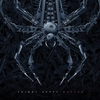For the most wild, yet most homely narrative which I am about to pen, I neither expect nor solicit belief. Mad indeed would I be to expect it, in a case where my very senses reject their own evidence. Yet, mad am I not-and very surely do I not dream. Why is the passage an example of verbal irony?
the narrator is truthful
the narrator does not expect to believed
the narrator does not write his story
the narrator really is mad
Answers (1)
Know the Answer?
Not Sure About the Answer?
Find an answer to your question 👍 “For the most wild, yet most homely narrative which I am about to pen, I neither expect nor solicit belief. Mad indeed would I be to expect ...” in 📗 English if the answers seem to be not correct or there’s no answer. Try a smart search to find answers to similar questions.
Search for Other Answers
You Might be Interested in
Which phrase contains a proper noun A. over the holiday break B. The day after tomorrow C. A week from Sunday D. During your vacation week
Answers (1)
The perspective in "one minute longer" switches between wolf and the boy throughout the story. How does this affect the story?
Answers (1)
How does the line "characters born of the poet's brain" affect the meaning of the interview?
Answers (1)
Read the sentences. The Park District has won many awards. The Park District has several fine programs for young children.
Answers (1)
The reader can most reasonably conclude that the homesteader is a person who?
Answers (1)
New Questions in English
Identify the sentence that uses pronouns correctly. a. they invited she and him to go camping. b. they invited he and i to go camping. c. they invited she and i to go camping. d. they invited him and me to go camping.
Answers (1)
What is your objective when you are writing to inform? A. To provide your opinion about new information B. To learn new information about a specific subject c. To show why the audience should agree with your opinion D.
Answers (1)
According to fireside chat #19 what has America done to prepare for war wall all of Europe was already in war? A. The US government has stockpiled non perishable food Incase of shorages during a war. B.
Answers (1)
Explain how using context clues can be described as putting a puzzle together:
Answers (2)
Choose all of the adjectives. quick quickly careful carefully extreme Choose all of the adjectives. quick quickly careful carefully extreme extremely
Answers (2)

